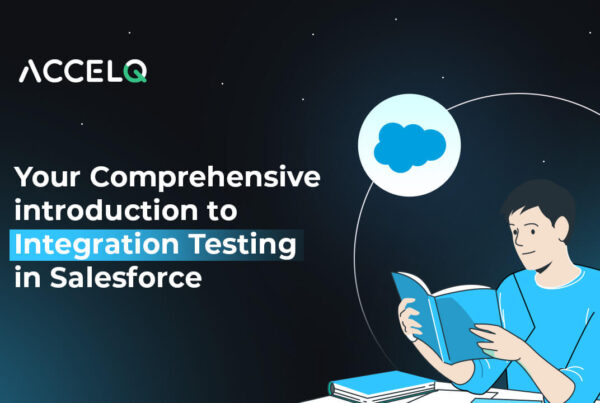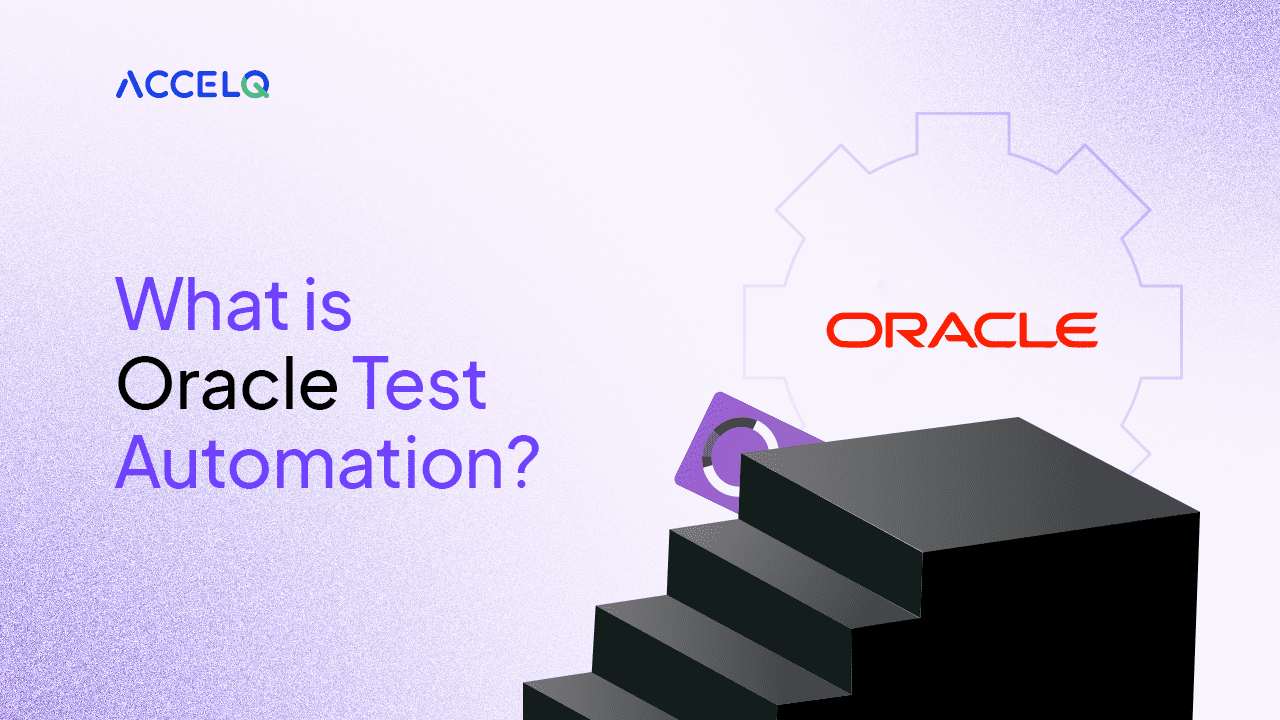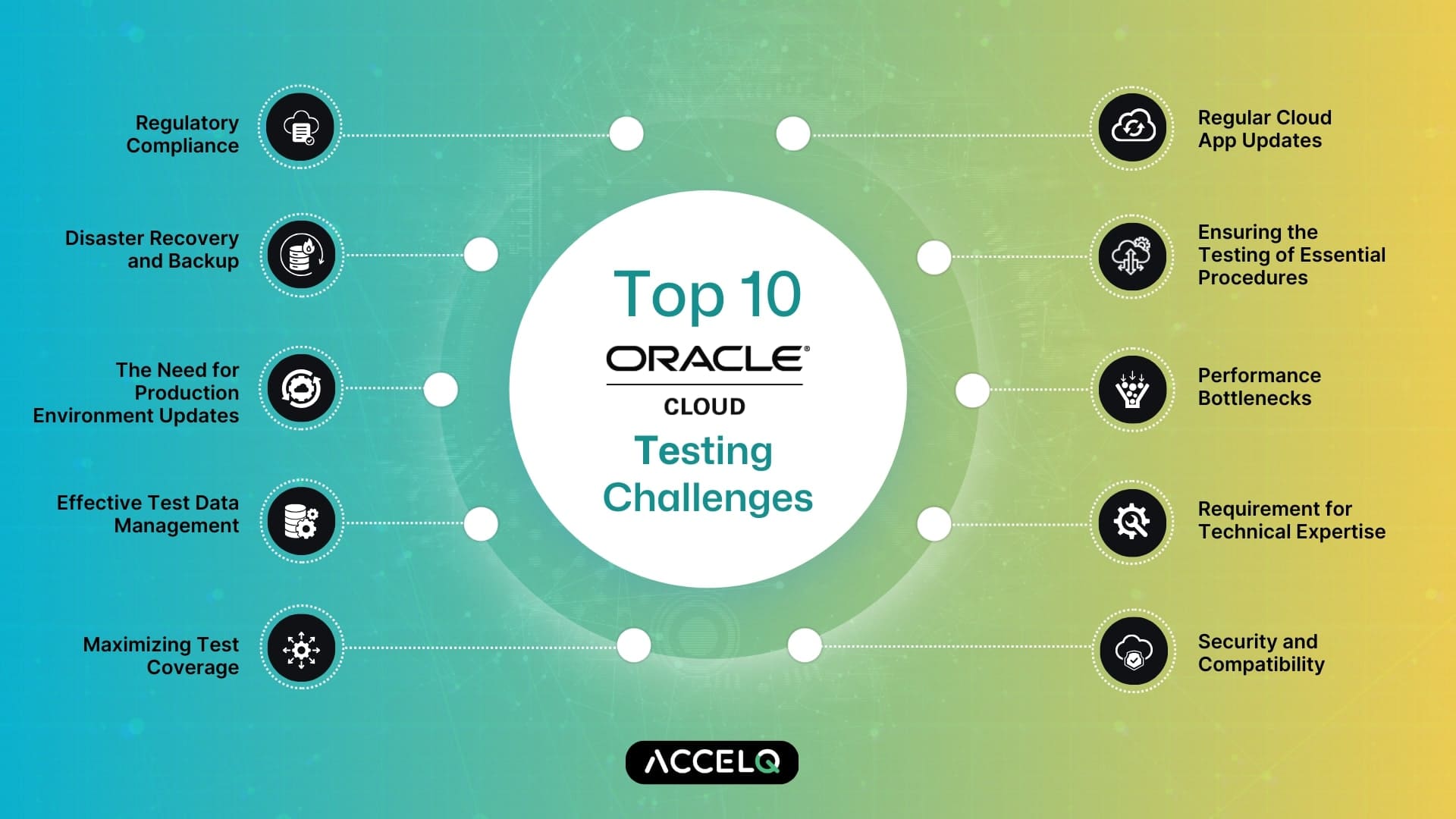What Is Oracle Test Automation

Oracle Cloud is growing, and enterprises are looking for ways to accelerate their release cycles, reduce Turn Around Time (TAT), and enable continuous delivery. First, however, they must automate testing and drive application defensibility to achieve these goals.
As far as the Oracle Cloud infrastructure is concerned, it is evident that the Oracle Database, Fusion Middleware, and the like are ideal for building and running IT. They must ensure their applications work seamlessly across the Oracle Cloud Infrastructure. This entire process is something that can be possible with oracle cloud automated testing.
What is Oracle Test Automation?
Oracle test automation refers to the systematic approach to automating the testing process of Oracle applications, including databases, ERP systems, and cloud services. By leveraging Oracle automated testing tools, organizations can simulate user actions and validate system responses, ensuring that their Oracle solutions meet the desired performance and reliability standards.
This Oracle automated testing is crucial for continuous integration and delivery pipelines, facilitating a more agile and responsive development process. It aims to drive end-to-end test coverage through automated tests across applications run using Oracle Cloud Infrastructure.
SUGGESTED READ - Why Automated Testing is Critical for Oracle Implementation
Example of Oracle Test Automation
A prime example of Oracle test automation in action is the automated regression testing of an Oracle E-Business Suite. A company can automate complex test scenarios involving multiple Oracle modules by utilizing an Oracle automation tool like ACCELQ. This speeds up the testing process and significantly increases test coverage and accuracy, ensuring that upgrades or patches do not introduce new issues.
How to Perform Oracle Cloud Automated Testing?
The Oracle Cloud infrastructure facilitates a resourceful and feature-laden environment for enterprise-grade applications. However, performing oracle cloud automated testing is imperative to ensure these applications are bug-free.
1. Modularize the architecture
The program can be easily managed at different levels by breaking up the architecture into modules. It helps more organize the structure and groups each microservice or sub-component.
2. Select the right tools
The next step is to select the oracle automation tool for testing the Oracle Cloud application. While choosing a test automation tool, it’s essential to consider a few fundamental points, such as: Does it support the Oracle Cloud Infrastructure? Does it facilitate codeless (no-code) automation? Does it help with self-healing?
3. Create a test framework
The next step is to make a test structure by keeping track of and writing down the test cases for each service. After that, each microservice or sub-component must be set up correctly and automatically. This will let you write tests for functionality, regression, and scale. It will also help to use test cases already made in the Oracle Cloud library.
Best Practices for Oracle Test Automation
Adhering to best practices is crucial for maximizing the benefits of Oracle test automation:
Right test cases
Customarily, the test cases for automation are selected based on the expected outcome and the acceptance criteria. This translates to segregating the test cases per the functional and non-functional aspects. Also, identify the scope of automating the redundant, error-prone, high-risk, or manually intensive tests.
Test automation strategy
Test automation is integral for future growth, and enterprises must build a powerful test automation strategy to leverage the same. This requires a strong understanding of the feasibility of automating test assets and the return on investment for project-specific needs.
Automation Testing Tool
There is an unavoidable practical need to automate test tools. But one of the biggest mistakes that can lead to failure is not looking at all the test automation choices. Test automation is more than just adding scripts to a system for test automation. Understanding why you should use the right tool for the job is important.
Challenges in Oracle Test Automation
Oracle test automation faces several challenges that can impede the efficiency and effectiveness of testing efforts. Below, we explore these challenges and solutions to overcome them, ensuring a smoother and more reliable automation process.
Challenge 1: Complex Application Interfaces
Oracle applications often feature complex interfaces with intricate workflows and business logic. This complexity can make automation difficult, leading to increased time and effort in script development and maintenance.
Solution: Utilize Oracle automated testing tools designed for complexity. Tools like ACCELQ offer codeless automation capabilities, allowing testers to automate complex scenarios without deep programming knowledge. These tools can interpret Oracle application interfaces more efficiently, reducing the complexity involved in script creation and maintenance.
Challenge 2: Dynamic Content and UI Changes
Oracle applications are frequently updated, leading to user interface (UI) changes and dynamic content that can break existing test scripts.
Solution: Implement a robust test maintenance strategy. Choose Oracle automation tools that support AI-based object recognition and dynamic locators. These features allow test scripts to adapt to UI changes automatically, significantly reducing the maintenance workload.
Challenge 3: Data Dependency
Testing Oracle applications often requires specific data setups, making tests prone to failure if the required data isn't available or correctly configured.
Solution: Adopt data-driven testing approaches. Externalizing test data from the test scripts allows you to easily update the data without changing the scripts. Tools that offer integrated test data management can streamline this process, ensuring tests have the necessary data setups to execute successfully.
Challenge 4: Integration Testing
Oracle applications do not operate in isolation but are part of a larger ecosystem of enterprise applications. Testing the integrations between these applications can be challenging due to the various interfaces and protocols.
Solution: Leverage Oracle cloud automated testing platforms that offer extensive integration capabilities. These platforms can simulate various interfaces and services, facilitating comprehensive integration testing. Ensuring your testing tool has built-in support for API testing and service virtualization can simplify these efforts.
Challenge 5: Performance and Scalability
Ensuring that Oracle applications perform under load and scale according to business needs is a critical challenge, especially in cloud environments.
Solution: Integrate performance testing into your Oracle test automation strategy. Select tools that can simulate load on applications and measure performance metrics. Cloud-based testing tools can offer scalable resources to mimic real-world usage patterns, helping identify performance bottlenecks in a controlled environment.
Challenge 6: Skillset and Knowledge Gap
The complexity of Oracle applications and the specialized knowledge required for effective automation can create a skillset and knowledge gap within teams.
Solution: Focus on training and enablement. Invest in training programs for your team on Oracle applications and the selected automation tools. Choosing user-friendly automation tools with extensive documentation and community support can also help bridge this gap.
ACCELQ and Oracle Test Automation
Automating test cases for Oracle’s business applications requires tools that can handle complex test scenarios, which ACCELQ facilitates.
Our feature-rich codeless test automation support for Oracle helps with continuous delivery and provisions the optimum level of flexibility and customization to meet the specific needs of testing projects on Oracle apps.
Are you interested in a ready-to-go, no-code framework for Oracle test automation? Connect with our team today for your strategic solution.
Suggested Watch
Geosley Andrades
Director, Product Evangelist at ACCELQ
Geosley is a Test Automation Evangelist and Community builder at ACCELQ. Being passionate about continuous learning, Geosley helps ACCELQ with innovative solutions to transform test automation to be simpler, more reliable, and sustainable for the real world.
Discover More
 A quick overview of Salesforce Marketing Cloud
A quick overview of Salesforce Marketing Cloud
A quick overview of Salesforce Marketing Cloud
 Your Comprehensive Introduction to Integration Testing in Salesforce
Your Comprehensive Introduction to Integration Testing in Salesforce

































